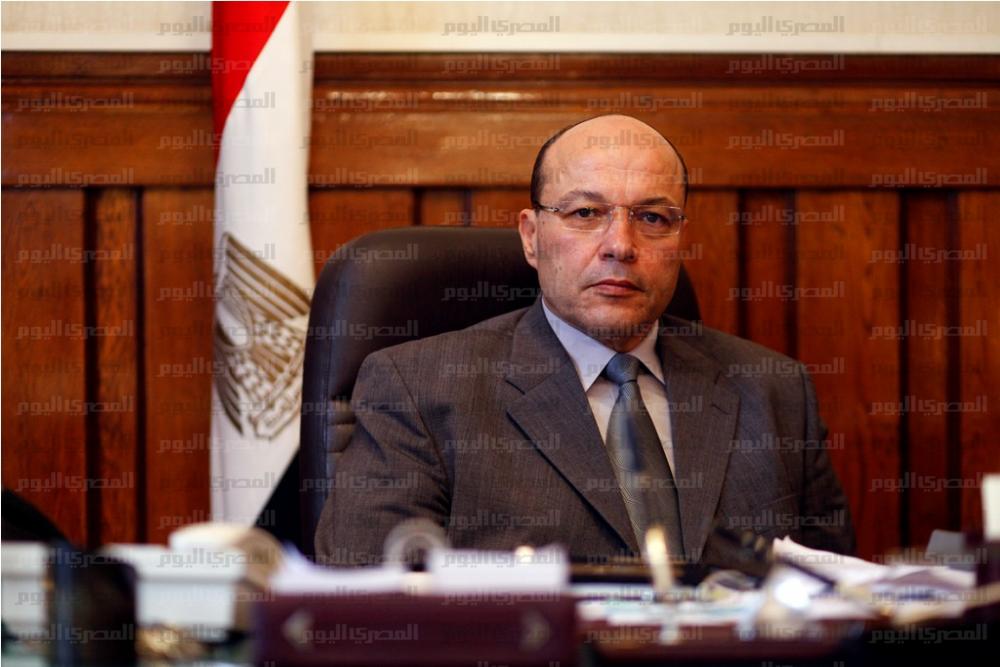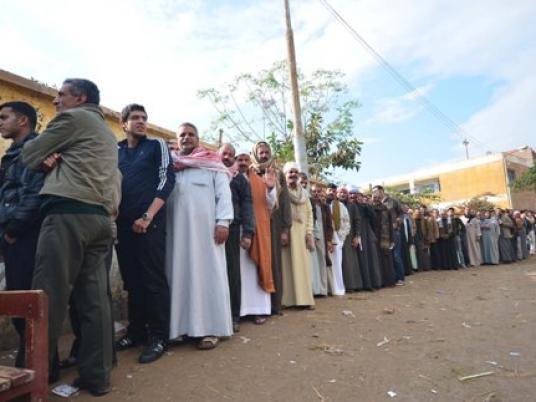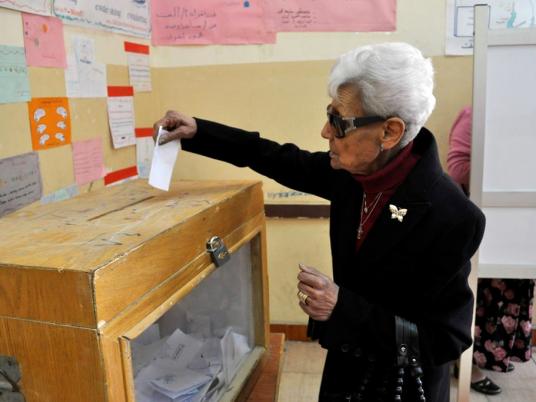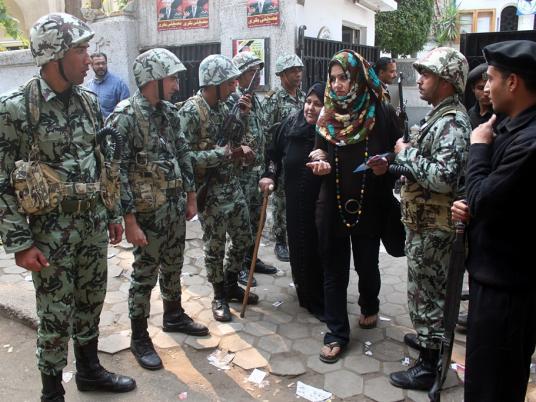After the first round of the Egypt’s parliamentary elections delivered a sweeping victory to President Hosni Mubarak's ruling National Democratic Party (NDP), the embattled opposition and analysts alike contend peaceful pressure no longer provides a legitimate avenue to political reform.
Those critical of status quo political conduct in Egypt say violent options may now be on the table.
“The NDP sent a message to voters that any hope for change by peaceful means is not conceivable,” said Hussein Abdel Razek, a leading member of the leftist Tagammu party. “Unfortunately, the threat of violence and explosions is conceivable in light of people’s despair.”
Human rights organizations echoed suggestions of impending unrest.
“This parliament does not give any hope to anyone to engage in the political process,” said Bahey el-Din Hassan, director of the Cairo Institute for Human Rights Studies. “It tells Egyptians 'give up politics, go commit suicide, leave the country or resort to violence'.”
According to official results, the NDP secured nearly all of the seats decided in Sunday's first round, leaving only a handful of positions to officially-recognized opposition parties.
The Muslim Brotherhood, Egypt’s strongest opposition force, came out of Sunday's race virtually empty-handed. The group, which secured nearly one-fifth of the seats in the 2005 election, may have no voice in the next People’s Assembly. Brotherhood leaders are torn over whether to field candidates in the upcoming run-off poll.
“Everything built on falsehood is illegitimate," Mohamed Badie, the Muslim Brotherhood’s supreme guide, told reporters on Tuesday. "These elections are illegitimate in almost all districts.”
“We continue on our peaceful path. We won't let anyone lead us into a violent reaction that is against the law or constitution.”
Marginalizing the Brotherhood will not push the 83-year-old organization into violence, analysts suspect, but could eventually close down any venues for political venting.
"Violence is not expected from any party or even the Muslim Brotherhood," commented Abdel Razek. "I am talking about disorganized masses that may engage in spontaneous violence and explosions."
In recent years, thousands of workers engaged in a series of labor strikes and protests over better economic conditions, placing tremendous pressure on the ruling party. The highpoint of this wave was the April 2008 protests that erupted in the Delta province of Mahalla.
Tagammu secured only one seat in the first round. Its liberal bourgeois-based contender Wafd party is in a similarly poor position, as it claimed only three seats.
“Egypt is going back to the single party system that does not accept divergent views or opposition and this is not in the best interest of the country,” said Ali al-Salmi, assistant chairman of Wafd.
Yet, for the regime’s supporters, the opposition’s outcry holds no currency.
“The first round is a good democratic start,” said Magdi al-Daqqaq, editor of the state-owned October magazine. “Unfortunately, in Egypt as well as in other third world countries, we do not have the election culture. While losers should acknowledge their defeat and congratulate winners, they keep talking about rigging and thuggery.”
According to al-Daqqaq, the NDP's triumph attests to the party’s strong social base.
“It was expected that the NDP will get the majority of seats,” he said. “This is a logical and natural result for a party that is connected with people and has achievements.”
The run-off set for this Sunday is not expected to enhance the position of non-NDP candidates by any significant measure. The Muslim Brotherhood candidates are expected to stand a second race over 26 out of nearly 280 seats that are yet to be decided. As for Wafd and Tagammu, their nominees can still vie for only 9 and 6 seats respectively.
Most of the run-off races will be fought between NDP candidates, as the party fielded more than one nominee per seat in more than 100 districts.
“Going on with this game is not useful,” said al-Salmi. “No matter how many seats non-NDP candidates will get, [the number] will be of no value and will not lead to the formulation of any opposition in parliament.”
The ideal option is to withdraw from the run-off, al-Salmi said.
For its part, the Muslim Brotherhood on Tuesday hinted that it might boycott the second round in protest over electoral violations committed against its candidates.
On Sunday, nearly 5000 candidates competed over 508 seats. The race was marred by violence, that reportedly left 16 killed, and fraud allegations. The opposition claimed their representatives were not allowed to monitor the poll while their supporters were denied access to the ballot box.
Moreover, many journalists faced police harassment and intimidation while covering violations. Monitors were not allowed to enter polling centers in many districts, as well.
“The whole thing is an ugly joke,” said Samer Shehata, a political scientist with Georgetown University, who is currently in Egypt to follow the poll. “It is a travesty of what elections are supposed to be. There was no resemblance of free and fair elections.”
And criticism of electoral conduct is not restricted to Egyptian analysts and politicians. The US State Department voiced concern over “irregularities” that accompanied the poll.
"We are disappointed by reports in the pre-election period of disruption of campaign activities of opposition candidates and arrests of their supporters, as well as denial of access to the media for some opposition voices," US State Department spokesman P.J. Crowley said.
To Shehata, these words are not enough to pressure Egypt to reform.
“There are not very harsh condemnations;" said Shehata. "The State Department expressed some serious concern and reservations but at the end it was not the Secretary of State or the White House press person or [Barack] Obama himself who is making the criticism.”
“It is a slap on the wrist and if the regime gets away with it, it is a very small price to pay for a fraudulent election.”




